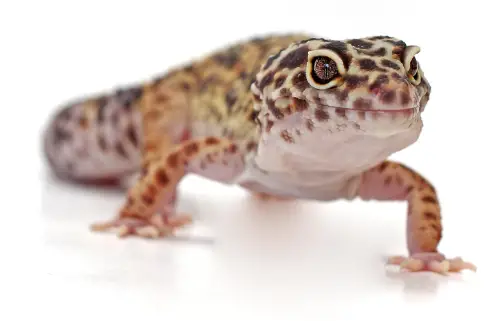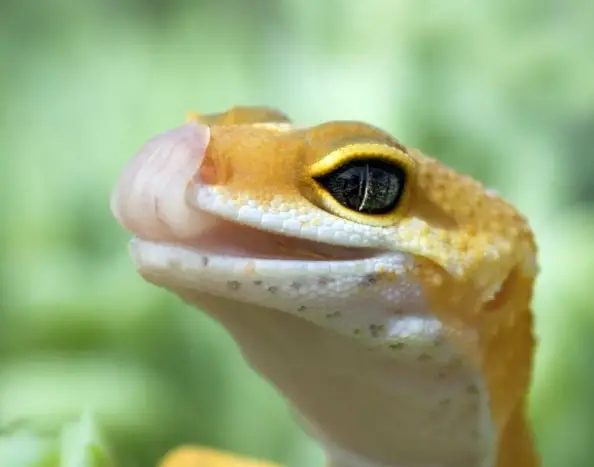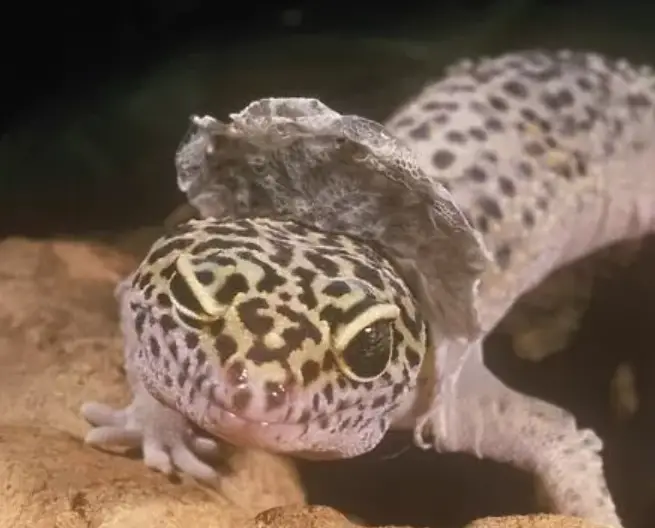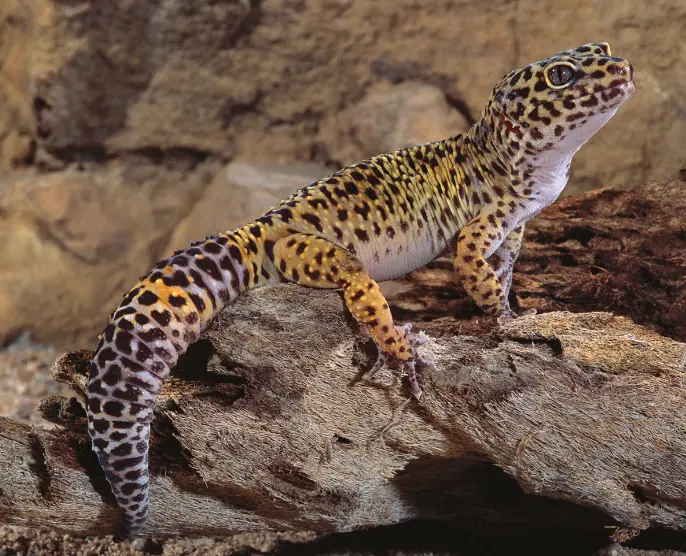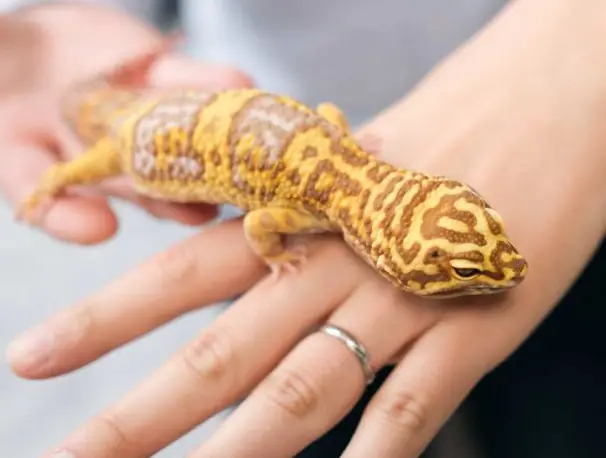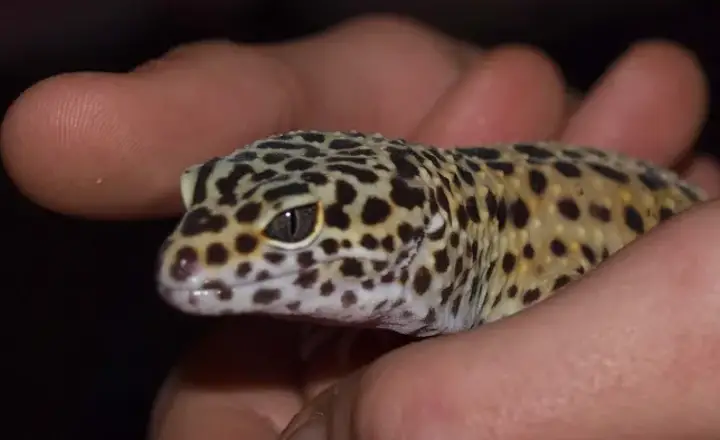Leopard geckos are popular pets due to their docile nature and ease of care. However, one question that many potential owners have is how long they can leave their leopard gecko alone. After all, everyone needs to go out or go on vacation at some point, and it’s important to know that your pet will be okay while you’re away.
It is generally recommended to not leave a leopard gecko alone for more than a week at a time. However, if you have someone who can check on them and provide them with food and water every 2-3 days, they can be left alone for up to two weeks. It is important to make sure the enclosure is properly set up and the gecko is healthy before leaving them alone for extended periods of time.
In this article, we’ll delve into the specifics of how long a leopard gecko can be left alone, as well as provide tips for ensuring their well-being while you’re away.
Do Leopard Geckos Like To Be Left Alone?
Leopard geckos do not enjoy being left alone, though.
When looking for a companion lizard, pet owners frequently choose leopard geckos. These little lizards require a big commitment because they can grow to a height of about 15 to 25 cm and can survive for up to 20 years in captivity. Leopard geckos are capable of becoming acclimated to handling through regular interaction, despite the fact that they typically prefer living alone.
What Are The Factors That Affect How Long A Leopard Gecko Can Be Left Alone?
There are several factors that can affect how long a leopard gecko can be left alone:
- Age: Juvenile and adult leopard geckos can typically be left alone for long periods of time compared to hatchlings and young juveniles, who have higher energy and nutritional requirements and may require more frequent feeding and care.
- Health: Leopard geckos with underlying health issues or conditions may require more frequent attention and care, and may not be able to be left alone for as long as healthy individuals.
- Temperature and humidity: Leopard geckos require a specific temperature and humidity range in their enclosure to maintain their health. If the enclosure is too hot or too cold, or if the humidity is too high or too low, the gecko may become stressed or develop health issues.
- Enclosure size: Leopard geckos need a spacious enclosure to move around in and explore. A larger enclosure may allow for longer periods of time alone, as the gecko has more space to engage in natural behaviors.
- Diet: A well-balanced diet is essential for the health of a leopard gecko. If the gecko is not getting enough nutrition, it may become weak and susceptible to illness, requiring more frequent care and attention.
- Socialization: Leopard geckos are solitary animals and do not typically require socialization with other geckos. However, if a leopard gecko has been raised with other geckos or has been handled frequently, it may become more social and may require more attention and interaction.
What Should You Do So That You Can Safely Leave Your Leopard Gecko Alone?
There are several things you can do to make the trip stress-free for both of you if you’ve been planning a one-week vacation for some time but don’t want to bring your leopard gecko with you. These consist of:
- Get someone to check up on your leopard gecko
One of the most crucial tasks you must complete before leaving your leopard gecko alone for a week is this. If someone is already coming to your house to deliver your mail or feed your other pets, you may ask a friend or family member to take care of this for you.
Giving them explicit directions on how to monitor the tank’s temperature and humidity, top off their water, and make sure they have food is the main thing you need to do.
- Clear out the tank of your leopard gecko.
You must clean the leopard gecko’s tank before entrusting it to your chosen caretaker. This will lessen the load on the caretaker and prevent your gecko from contracting any ailments linked to nutrition while you’re away. This is especially crucial if the caregiver you’ve picked has never cleaned a leopard gecko’s tank and doesn’t have their own leopard gecko.
If you let them handle it, your leopard gecko’s tank may end up with bleach and other harsh cleaning agents. This may aggravate your pet and make them feel really uncomfortable. Remove any feces from the tank, clean all the food and water bowls, and change the substrate if necessary before you depart on vacation.
- Get all your leopard gecko’s supplies beforehand
Make sure to pick up on the particular foods and supplies your leopard gecko-like before you go because only you know what they are. This is crucial if you have a baby gecko because they require food every day. Remember that leopard geckos have a reputation for rejecting unfamiliar foods and sometimes staging hunger strikes in order to get what they want.
- Make a care sheet and a checklist.
You must inform them, and provide them with a checklist, and a care document if you decide to leave your leopard gecko with a friend, a member of your family, a pet sitter, or a local reptile shop. The sheet ought to contain all the details your caregiver requires. If you both have time, you can even physically show the caregiver how to perform the necessary tasks.
- Set up your lighting and heating system.
Make sure to keep the heat mat on when you leave if you typically use one to warm the tank for your leopard gecko. If you want to use a heat lamp in its place or in addition, you will need to turn it off and rely on the caregiver to turn it back on as necessary.
But it’s preferable to set up your heat lamps on programmable timers so that they turn on and off in line with day-night cycles. Alternatively, you might use a smart plug, which enables you to use your smartphone to control the lighting in your aquarium.
Conclusion
In conclusion, it is generally safe to leave a leopard gecko alone for short periods of time, such as a few days or a week. However, it is important to ensure that their enclosure is properly set up and maintained and that they have access to food, water, and a suitable environment. It is not recommended to leave a leopard gecko alone for extended periods of time, as they are social creatures and may become stressed or lonely without proper care and attention. Overall, it is important to consider the individual needs of your leopard gecko and make sure they are properly cared for while you are away.
